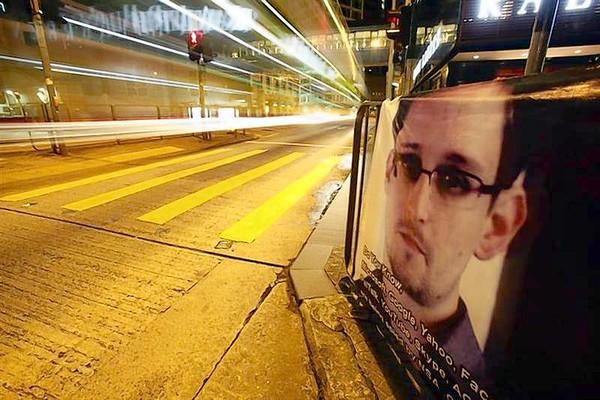Edward Snowden’s Fear Of Flying Is Justified

The Article: Edward Snowden’s fear of flying is justified by Geoffrey Robertson in The Guardian.
The Text: As Edward Snowden sits in an airside hotel, awaiting confirmation of Russia’s offer of asylum, it is clear that he has already revealed enough to prove that European privacy protections are a delusion: under Prism and other programmes, the US National Security Agency and Britain’s GCHQ can, without much legal hindrance, scoop up any electronic communication whenever one of 70,000 “keywords” or “search terms” are mentioned. These revelations are of obvious public interest: even President Obama has conceded that they invite a necessary debate. But the US treats Snowden as a spy and has charged him under the Espionage Act, which has no public interest defence.
That is despite the fact that Snowden has exposed secret rulings from a secret US court, where pliant judges have turned down only 10 surveillance warrant requests between 2001 and 2012 (while granting 20,909) and have issued clandestine rulings which erode first amendment protection of freedom of speech and fourth amendment protection of privacy. Revelations about interception of European communications (many leaked through servers in the US) and the bugging of EU offices in Washington have infuriated officials in Brussels. In Germany, with its memories of the Gestapo and the Stasi, the protests are loudest, and opposition parties, gearing up for an election in September, want him to tell more.
So far Snowden has had three offers of asylum from Latin America, but to travel there means dangerous hours in the air. International law (and the Chicago Convention regulating air traffic) emphatically asserts freedom to traverse international airspace, but America tends to treat international law as binding on everyone except America (and Israel). Thus when Egypt did a deal with the Achille Lauro hijackers and sent them on a commercial flight to Tunis, US F-14 jets intercepted the plane in international airspace and forced it to land in Italy, where the hijackers were tried and jailed. President Mubarak condemned the action as “air piracy contrary to international law” and demanded an apology, to which Reagan replied: “Never.” The UK supported the action as designed to bring terrorists to trial.
In 1986 Israel forced down a Libyan commercial plane in the mistaken belief that PLO leaders were among its passengers, and the US vetoed UN security council condemnation. So there must be a real concern, particularly after Nato allies collaborated in forcing down the Bolivian president’s jet, that the US will intercept any plane believed to be carrying Snowden to asylum, either because he is tantamount to a terrorist (Vice-President Biden has described Julian Assange as a “hi-tech terrorist”) or simply because they want to put him on trial as a spy.
That, no doubt, is why Snowden cancelled his ticket to Cuba a few weeks ago, fearing the flight would end in Florida. Russia has, in effect, provided him with temporary asylum (there is no legal magic about staying airside – he is in Russia) so he might be best advised to accept the gag and enjoy Moscow’s hospitality. Until, perhaps, a new government in Germany after its September elections offers him a platform if he turns up as a refugee, whereupon he could take a tramp steamer to Hamburg.
In the meantime, states should start considering the impact of the information he has revealed so far. It was, ironically, the White House that last year called for an international convention to regularise “consumer data privacy in a networked world”. There is no international standard for permissible periods of data retention, for what data can be retained or to whom data can be released. Western democracies differ in modes of protection. Canada, Germany and Australia require warrants from independent judges; the US from judges in a secret security court whose record shows them to be rubber stamps. In Britain ministers lack the time or ability to assess the warrants they routinely sign. France is even worse – the prime minister’s office can authorise “national security” interceptions with no oversight.
Does this mean that the possibility intelligence services might find a terrorist needle in a data haystack justifies abandoning any hope of effective privacy regulation? Foreign secretary William Hague, who is in political charge of GCHQ, seems to think so: “Law-abiding citizens have nothing to fear.” But it is precisely law-abiding citizens who have had careers ended by dissemination of secret state surveillance. Ironically, it has been suggested that one victim of the NSA’s metadata search machine was none other than the CIA director General Petraeus – guilty, at least in American eyes, of adultery.
Snowden is not a “traitor”, and nor does he deserve to be prosecuted as a “spy”. These laws have no public interest defence, and until they do any European country that surrenders him to end his life in an American supermax prison would be in breach of the free speech guarantee of the European convention of human rights, which is meant to protect those who release information of importance to democratic debate.









